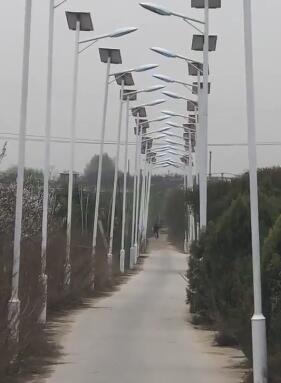备孕是每对准父母的重要阶段,为了确保身体健康和提高受孕成功率,孕前准备至关重要。红参作为一种珍贵的中草药,不仅在食疗方面有着悠久的历史,还具有丰富的营养价值和对孕前准备的重要作用。红参是一种生长在亚洲
一、备孕日历指南:如何选择、作用及制作小技巧:4. 备孕必备!如何选择适合自己的备孕日历?:备孕是每个想要孩子的夫妻都会面临的一个阶段,而如何选择适合自己的备孕日历则是备孕过程中非常重要的一步。在备孕
1.2 壳聚糖的抗氧化性及成膜性壳聚糖的抗氧化性主要是通过其结构上存在的羟基和氨基很强的还原性来实现的。在食品贮藏过程中,羟基和氨基可以与H2O2和自由基发生氧化还原反应,从而达到抗氧化和清除自由基的
中国消费者报合肥讯记者司宇萌)针对近日媒体反映的某地“麦当劳使用过期食材”舆情,安徽省市场监管局高度重视,迅速部署,立即组织全省市场监管部门对全省各地麦当劳门店开展突击监督检查
http://www.cnecn.com.cn/d/file/p/2024/04-25/13d3eebcfbe8fbcfabceaf9840adb663.jpg|http://www.cnecn.co
天津碱厂纯碱价格稳定,轻质碱出厂报价1320元/吨,成交价格有一定商谈空间,重质碱暂无报价,产品主供周边地区,出货有压力,纯碱装置7月28日停车,预计近期开车。
2.2 危害特征描述根据沙门菌的菌体抗原和鞭毛抗原可将其分为2600多种血清型,其中人感染以肠炎沙门菌、鼠伤寒沙门菌及其变种等血清型为主。人通过接触和摄食等途径感染沙门菌时,不同血清型感染剂量不同,剂
中国消费者报济南讯记者尹训银)天气转冷,很多人喜欢在家涮一顿热气腾腾、麻辣鲜香的火锅,暖胃又暖心,那么,火锅食材的食品安全状况如何?10月22日,山东省济南市市场监管局“周末查食安&rdq

http://pic1.k1u.com/k1u/mb/d/file/20240523/1716452618902291_836_10000.png|http://pic1.k1u.com/k1u/mb
2结果与分析2.1环境空气VOCs检测方法使用现状该次共有216家实验室参加比对,其中使用手工监测法和在线监测法的实验室数量分别为192家和24家,使用手工监测法占比高达89%。由此可见,目前针对环境
第一届海南生物材料降解产品标准化技术委员会于2021年6月9日在省质检大楼会议室召开第一次年会,16名委员和代表出席会议。在年会的主题上,吴玉伟秘书长介绍了标准委员会成立以来的工作,宣布调整和补充委员
中国消费者报广州讯陈晓莹记者 李青山)近日,广东省市场监管局知识产权局)发布通告,决定自10月20日起,在国家知识产权局广东业务受理窗口等十二个知识产权政务服务窗口设立香港特别行政区知识产权问询点,面
https://image11.m1905.cn/uploadfile/2024/0418/20240418093620935129.jpg|https://image11.m1905.cn/uplo
目的:基于乳及乳制品以下简称乳品)对儿童营养健康的重要作用,综合分析我国儿童膳食营养状况和乳品消费现状,结合专家意见形成《乳品与儿童营养共识》。方法:组织儿童营养、乳品科学等科技界与产业界专家,通过文
中国消费者报杭州讯记者郑铁峰)记者近日获悉,为深化政务服务数字化转型,更好地便民利企,浙江省宁波市场监管局在推行电子营业执照、电子印章的基础上,先行先试,大胆探索,聚焦10类工业产品申请和审批领域,积
中国消费者报西安讯记者徐文智)自市场监管总局民生领域案件查办“铁拳”行动部署以来,陕西省西安市市场监管局坚持以党史学习教育为契机,紧紧围绕“我为群众办实事
http://www.hwenz.com/pic/感情题目100例下兴热战的案牍!一段掉败的豪情经历.jpg
9月19日,广东省玻璃行业协会黄少塔秘书长在第三届工业燃料大会表示,在新形势下,玻璃行业面临着高成本的严峻问题,正积较寻找廉价且清洁的能源供应。据黄少塔表示,中国是大部分国家玻璃大国,截至2011年年

在 12.20 - 21 这两天,名流品牌带着独有的热情与创意,奔涌在上海的街头巷尾,一场圣诞狂欢风暴就此席卷而来,宛如冬日里最炽热的烟火,刹那间点亮魔都,将圣诞节日氛围推向了极致,给这座城市留下了炽
新生儿15天能用安抚奶嘴吗?对于新手妈妈来说,当宝宝哭闹不止时,安抚奶嘴可以起到一定的缓解作用。不过,对于刚满15天的新生儿是否能够使用安抚奶嘴,这是一个让很多人比较纠结的问题。下面我们来听听专家的建
光伏产业虽然属于相关部门政策支持的新兴产业,但光伏业开局就遇到难以摆脱的产能过剩梦魇。要想完全改观,必须重塑从光伏生产到光伏发电消费的各个环节。这都需要光伏业内以及相关部门做出相当大的努力。
秦艽是我国延用了两千多年的珍贵传统中药,又是常用的传统藏药、蒙药材。秦艽在中药中以根入药,而在藏药、蒙药中主要以花入药。秦艽花具有潜在药用价值,其在藏族、蒙古族中被广泛应用于治疗水肿、黄水病、咳嗽、关
https://mma.prnasia.com/media2/2259290/image_984982_17917438.jpg?p=medium600
2 结果与分析2.1 3种真菌单独培养由表1数据作曲线图得到图1。由表1和图1我们可以看出,3种真菌单独培养时,无论何时测量2种木霉菌的生长半径都明显大于病原菌的生长半径,未达到72h时,2种木霉菌都
中节能湖北汉川10MWp光伏农业科技大棚电站一期项目EPC工程总承包招标公告招标编号:GXTC-1202084所属地区:湖北受委托,对中节能湖北汉川10MWp光伏农业科技大棚电站一期项目EPC工程总承
中国消费者报报道记者施本允)今年是孙灵娟在义乌创业的第四个年头,作为义乌商品城一区二楼福多拉饰佳饰品店的店长,在她的商位里可以看见各类国潮文化的小饰品。“我卖的是纯手工的饰品,虽然出货慢,